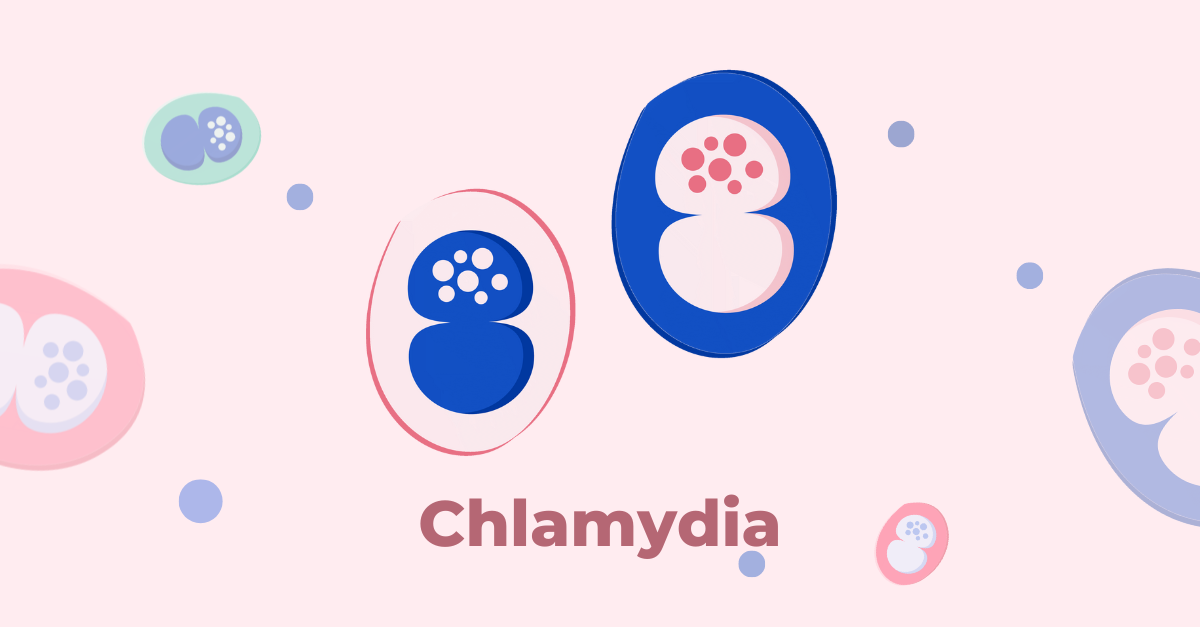Overview
Chlamydia is caused by bacteria. It is one of the most common sexually transmitted diseases. You might not know you have chlamydia because many people don't have signs or symptoms. That means you can pass chlamydia to sexual partners without knowing it.
In fact, about 75% of infections in women and 50% in men have no symptoms.
Chlamydia affects mostly young women, but it can occur in both men and women and in all age groups. It's not difficult to treat, but if left untreated, it can lead to more serious health problems.
Table of Contents:
- Symptoms and causes
- When to see a doctor?
- Diagnosis and treatment
- Coping and support
- Preparing for your appointment
- What to expect from your doctor
- What can you do in the meantime?
Symptoms and causes
How is chlamydia spread?
- Sexual contact: You can get chlamydia by having vaginal, anal, or oral sex with someone who has chlamydia. Also, you can still get chlamydia even if your sex partner does not ejaculate (cum).
- Mother to child: A pregnant person with chlamydia can give the infection to their baby during childbirth.
Symptoms
Chlamydia often has no symptoms. If symptoms occur, they may not appear until several weeks after having sex with a partner who has chlamydia. Symptoms in men can include:
- A discharge from their penis;
- A burning sensation when peeing; and
- Pain and swelling in one or both testicles (although this is less common)
Even when chlamydia has no symptoms, it can damage a woman’s reproductive system. Women with symptoms may notice:
- An abnormal vaginal discharge; and
- A burning sensation when peeing
Men and women can also get chlamydia in their rectum. While these infections often cause no symptoms, they can cause
- Rectal pain;
- Discharge; and
- Bleeding
When to see a doctor?
See a healthcare provider if you notice any of these symptoms. You should also see a provider if your partner has an STD or symptoms of one. Symptoms can include
- An unusual sore;
- A smelly discharge;
- Burning when peeing; or
- Bleeding between periods
Diagnosis and treatment
Diagnosis
CDC recommendation for screening
- Men and women at high risk: People who have multiple sex partners, who don't always use a condom, or men who have sex with men should consider frequent chlamydia screening.
- Sexually active women age 25 or younger: Yearly screening test is recommended. Even if you've been tested in the past year, get tested when you have a new sex partner.
- Pregnant women: Should be tested for chlamydia during their first prenatal exam. If you have a high risk of infection — from changing sex partners or because your regular partner might be infected — get tested again later in your pregnancy.
Diagnostic test
- A urine test: Sample of your urine is analyzed in the laboratory for the presence of this infection.
- A swab: For men, your doctor inserts a slim swab into the end of your penis to get a sample from the urethra. In some cases, your doctor will swab the anus.
For women, your doctor takes a swab of the discharge from your cervix for culture or antigen testing for chlamydia.
Treatment
Chlamydia is curable. Doctors can treat it with antibiotics. You might receive a one-time dose, or you might need to take the medication daily or multiple times a day for five to 10 days. Your doctor will prescribe oral antibiotics, usually azithromycin (Zithromax) or doxycycline. They’ll also recommend your partner(s) get treated to prevent reinfection and further spread of the disease.
In most cases, the infection resolves within one to two weeks. During that time, you should abstain from sex. Having chlamydia or having been treated for it in the past doesn't prevent you from getting it again.
Coping and support
Healthy ways to cope with having chlamydia include the following:
- Communicate with your partner. Be open and communicate with your partner.
- Educate yourself. Talk with your healthcare provider. Learn about your treatment options.
- Join a support group. Look for a group in your area or online. Learn from others' experiences.
Preparing for your appointment
Before your appointment, prepare to answer the following questions:
- When did your symptoms begin?
- Does anything make them better or worse?
- What medications and supplements do you take regularly?
You also might want to prepare a list of questions to ask your doctor. Sample questions include:
- Should I be tested for other sexually transmitted infections?
- Should my partner be tested or treated for chlamydia infection?
- Should I avoid sex during treatment? How long should I wait?
- How can I prevent chlamydia infection in the future?
What to expect from your doctor
Your doctor is likely to ask you a number of questions, such as:
- Do you have a new sexual partner or multiple partners?
- Do you use condoms consistently?
- Do you have pelvic pain?
- Do you have pain while urinating?
- Do you have sores or unusual discharge?
What can you do in the meantime?
Abstain from sex until you see your doctor. Alert your sex partners that you're having signs and symptoms so that they can arrange to see their doctors for testing.





